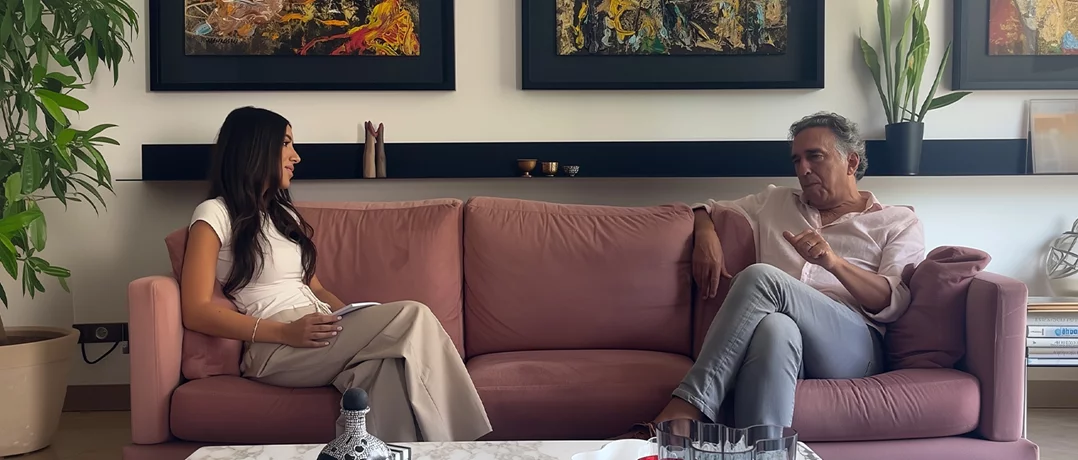Charif Majdalani, French Lebanese novelist, portrays Lebanon’s memory, beauty, and resilience, with his latest novel Le Nom des Rois earning a nomination for the prestigious Prix Goncourt.
Between memory and war: Charif Majdalani’s portrait of Beirut
Between memory and war: Charif Majdalani’s portrait of Beirut


In a country where stories often dissolve into silence or are swallowed by chaos, Charif Majdalani has built a body of work that insists on memory, beauty, and resilience. Through his novels, Lebanon is not just a backdrop but a restless character, fractured yet alive, wounded yet endlessly expressive.
Charif Majdalani is a French Lebanese novelist and professor at Saint Joseph University in Beirut. Majdalani has published ten novels in French, praised for their hallucinatory and seductive prose. His works have been translated into several languages and shortlisted for major Francophone literary prizes. He has won numerous awards, including the Jean Giono Prize (2015), the François Mauriac Prize (2008), and the Tropiques Prize (2008).
Now, with his latest recognition on the international stage, nominated for the prestigious Prix Goncourt for his eleventh novel Le Nom des Rois, Majdalani stands as both witness and storyteller, carrying Lebanon’s tangled histories into the wider world. His words remind us that literature can be both mirror and compass: reflecting who we are, while guiding us toward who we might become.
According to Majdalani, Le Nom des Rois is a dichotomy, both critique and love letter to Lebanon. In it, Majdalani captures the country as he knew it in his youth: vibrant, cosmopolitan, and full of life, before the sudden eruption of civil war changed everything.
Le Nom des Rois traces his adolescence during the last days of what is called Lebanon’s First Republic. Majdalani reflects on a time when he was immersed in dreams, books, and the routines of school life: friendships, teenage romances, the simple joys of youth. Then war arrived, abruptly shattering the world he knew. “At fifteen or sixteen, the entire world we were living in changed overnight. Friends disappeared, routines vanished, even the streets and cinemas we knew,” he recalls.
From that moment, I felt there was something I had to write about: the sudden transformation in our teenage lives
For Majdalani, the book is also a portrait of a lost Lebanon, seen through the eyes of his family and their social circles, where Beirut was a celebrated city with global connections. “Then the war came,” he says. “Slowly, the country we knew disappeared. If there is a message, it’s that we are still living the same story, the Lebanese story. People say we are resilient, but we are constantly in crises, wars, and political turmoil. And yet, life continues.”
Majdalani depicts the interconnection between French and Lebanese culture, both woven into his character and his writing. His decision to write in French reflects Lebanon’s cultural complexity. “My background is both Lebanese and French,” he explains.
I didn’t choose French, it came naturally. My mother, though Lebanese, was educated in French, like many of her generation. French became, in a way, my mother tongue, while Arabic remained my heritage language. Studying in France strengthened that bond and shaped my writing
The Lebanese author wrote from the perspective of a child, perhaps as a tool for readers to confront trauma more safely than reading the perspective of an adult. Through the eyes of a child, we witness a paradise lost and a world transformed, yet the narrative carries a quiet defiance. While Le Nom des Rois does not chronicle the war directly, it captures its atmosphere, the tension, fear, and uncertainty that pervaded daily life. “The sounds, the news, the growing awareness, all from a child’s perspective. Writing it was difficult, but necessary. It allows readers to feel the experience intimately, without the detachment of an adult viewpoint.”
Readers across generations have connected deeply with the book. Older readers recognize their own adolescent experiences reflected in Majdalani’s narrative, while younger generations gain insight into the lives of those who lived through the war. “By writing from a child’s perspective, young readers can understand how their parents experienced the war. They see life through our eyes, even if they didn’t live it themselves,” he notes.
When asked what message he would leave for Lebanese youth, Majdalani is clear:
Don’t live divided by sectarian loyalties or small group affiliations. Live as citizens, in a democratic homeland, a place where you can truly raise your children. That is the foundation for Lebanon’s future


